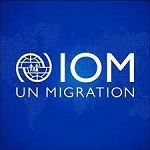
Position Title : National Officer (Prevention of Sexual Exploitation and Abuse)
Duty Station : IOM Philippines Country Office (Manila)
Classification : National Officer Staff, Grade NO-A
Type of Appointment : Fixed term, one year with possibility of extension
Estimated Start Date : As soon as possible
Closing Date : 6 February 2023
Established in 1951, IOM is a Related Organization of the United Nations, and as the leading UN agency in the field of migration, works closely with governmental, intergovernmental and non-governmental partners. IOM is dedicated to promoting humane and orderly migration for the benefit of all. It does so by providing services and advice to governments and migrants.
IOM is committed to a diverse and inclusive environment. Internal and external candidates are eligible to apply to this vacancy. For the purpose of the vacancy, internal candidates are considered as first-tier candidates.
Context:
Sexual Exploitation and Abuse (SEA) by aid workers is a grave violation of human rights and IOM is committed to combat any kind of SEA by its staff, related personnel and partners.
IOM’s zero tolerance policy also extends to IOM third party contracted staff, suppliers, service providers and implementing partners. With over 16,000 staff and over 6,000 related personnel, operating in 450 Offices, and 165 countries throughout the world, the impact of sexual exploitation and abuse on victims and within IOM’s operating environments, and the reputational risk it poses for the Organization needs to be addressed and remains a key priority.
The prevention of and response to Sexual Exploitation and Abuse (PSEA) continues to gain momentum not only within the United Nations (UN) and Interagency Standing Committee (IASC) common systems but also amongst governments, institutional partners, media, and the general public. Increased action is no longer a choice but a necessity, and the rights of the victim must be at the forefront.
Over the past decade, IOM has increasingly been seen as a strong player supporting the prevention and response to Sexual Exploitation and Abuse and Sexual Harassment within the UN, IASC, and amongst the humanitarian community. While significant progress has been made to prevent and respond to SEA within the Organization, such as through the development of innovative PSEA trainings, the development of a misconduct platform to report SEA, and extensive interagency collaboration, more needs to be done at the country and programmatic levels. The role of the PSEA Officer will support these efforts.
In 2021, IOM developed its strategic approach to prevent and respond to sexual exploitation and abuse and to sexual harassment, focusing on five priority areas: 1) Leadership and Organizational Culture; 2) Institutional Accountability and Transparency; 3) Capacity-Development, Training, and Communication; 4) Quality and Accessible Victim Assistance; and 5) Partnership and Coordination.
Under the overall supervision of the Regional Director, direct supervision of the Chief of Mission (Manila), and technical support from Head of Programmes (Manila), the incumbent will be responsible for supporting SEA prevention and response efforts in IOM Philippines. The National Project Officer (PSEA) will promote activities internally and in the interagency PSEA Network. At the programmatic level, a special emphasis will be placed on – but not limited to – resettlement and health assessment programming.
Core Functions / Responsibilities:
PSEA Coordination:
- Provide inputs for the development of an operational PSEA Work Plan for the IOM Philippines Country Office, in line with IOM’s PSEA Strategy, the IASC’s PSEA Minimum Operating Standards (MOS), and the UNCT country-level framework and workplan. This includes holding strategic workshops with programme management and participating in the establishment of an operational workplan with clear actions, roles and responsibilities, timeframes, technical and resource requirements, and internal reporting requirements.
- Provide technical input to mainstream PSEA in the IOM Country Office Strategy, programming, risk mitigation and management, planning, reporting, monitoring and evaluation, and budgeting; contribute to the development of PSEA programming and liaison with relevant donors, as assigned.
- Actively participate in the in-country interagency PSEA Network and provide IOM support for a collective PSEA strategy and workplan, risk management plan, Standard Operating Procedures (SOP) , PSEA communication and coordination initiatives, as well as inter-agency Community-Based Complaint Mechanism.
- At all possible opportunities (during relevant trainings, in staff and programme meetings, through newsletters, in email messages, etc) share key messages on PSEA, including mandatory reporting requirements.
Prevention:
- Provide assistance to IOM units/teams to develop and embed risk mitigation measures within all IOM programming and HR practices, with a particular focus on resettlement and HAP, in coordination with the PSEA risk mitigation officer. This includes developing a plan and conducting Implementing Partner PSEA capacity assessment accordingly, in coordination with the inter-agency PSEA Network.
- Analyze, compile and draft specific country-wide SEA risk assessment report to identify locations and programmes with the highest SEA risk, in coordination with other PSEA focal points and project teams; Check that the appropriate mitigation and response strategies within IOM programming and operations.
- Participate in the development of and implement a training plan for IOM staff and related personnel, implementing partners , key institutional stakeholders; support the work of in-country PSEA Focal Points to deliver key messaging and trainings as appropriate.
- Provide an annual report on all training recipients (personnel, contractors, implementing partners, and service providers) to track compliance and facilitate the management of training delivery and refresher courses, in coordination with HR.
- Participate in the development of communication and awareness-raising strategies and tools on prohibited behaviours and how to report misconduct allegations in IOM premises and in communities; and,
- Map existing community engagement projects in the country office and work with project leads to insert PSEA messages and/or gather community input where appropriate.
Response:
- Provide input on PSEA proposals and support mainstreaming PSEA in IOM programming; coordinate closely with institutional partners, governments, donors, and communities on PSEA needs and responses.
- Compile data on PSEA initiatives to highlight IOM’s application of prevention and response measures in IOM programming.
- Support efforts to map country-specific interagency victim assistance pathways and/or existing IOM programmes to refer victims for assistance and other support services, and coordinate victim assistance referrals with gender-based violence and/or protection colleagues.
- Provide PSEA surge support in country during times of disaster and contribute to the UN Humanitarian Country Team PSEA response.
- Undertake duty travel as required; and,
- Perform any other duties as may be assigned.
Required Qualifications and Experience
Education
- Bachelor’s degree in Law, International Relations, Psychology, Social Sciences, Development Studies and Planning or a related field from an accredited academic institution with two (2) years of relevant professional experience; or,
- Master’s degree in the above fields.
Experience
- Experience in the fields of sexual exploitation and abuse, protection, child protection, gender-based violence, accountability to affected populations (AAP), gender mainstreaming and/or humanitarian affairs;
- Coordination experience within the UN system and amongst interagency partners, including governments, NGOs, and communities;
- Experience in organizing and facilitating PSEA trainings, in particular capacity-building, and communication materials to promote behavior change;
- Experience undertaking PSEA risk assessments, in coordination with communities, partners, and UN and other key stakeholders;
- Demonstrated ability to work across a wide variety of sectors/teams on cross-cutting themes;
- Good written and oral communication skills, effective in representation and liaison with external partners;
- Experience in policy and proposal development and the creation of standard operating procedures and tools; and,
- Ability to organize work, work independently and prioritize work under pressure, coordinate multiple tasks, maintain attention to detail, and coordination with a variety of stakeholders.
Skills
- Knowledge and understanding of IOM’s institutional approach on PSEA and related strategies, policies, rules and regulations;
- Knowledge of the UN system and architecture;
- Knowledge of mainstreaming best practices and partnership models to ensure coordination of the same across a diversified range of actors; and,
- Ability to work with and maintain strict confidentiality, when necessary.
Languages
For all applicants, fluency in English and Filipino is required (oral and written). Working knowledge of one additional UN Language (French, Spanish, Arabic, Russian or Chinese) is an advantage.
Notes
Accredited Universities are the ones listed in the UNESCO World Higher Education Database (https://whed.net/home.php).
Required Competencies
The incumbent is expected to demonstrate the following values and competencies:
Values – all IOM staff members must abide by and demonstrate these three values:
- Inclusion and respect for diversity: respects and promotes individual and cultural differences; encourages diversity and inclusion wherever possible.
- Integrity and transparency: maintains high ethical standards and acts in a manner consistent with organizational principles/rules and standards of conduct.
- Professionalism: demonstrates ability to work in a composed, competent and committed manner and exercises careful judgment in meeting day-to-day challenges.
Core Competencies – behavioural indicators level 2
- Teamwork: develops and promotes effective collaboration within and across units to achieve shared goals and optimize results.
- Delivering results: produces and delivers quality results in a service-oriented and timely manner; is action oriented and committed to achieving agreed outcomes.
- Managing and sharing knowledge: continuously seeks to learn, share knowledge and innovate.
- Accountability: takes ownership for achieving the Organization’s priorities and assumes responsibility for own action and delegated work.
- Communication: encourages and contributes to clear and open communication; explains complex matters in an informative, inspiring and motivational way.
Managerial Competencies – behavioural indicators level 2
- Leadership: provides a clear sense of direction, leads by example and demonstrates the ability to carry out the organization’s vision; assists others to realize and develop their potential.
- Empowering others & building trust: creates an atmosphere of trust and an enabling environment where staff can contribute their best and develop their potential.
- Strategic thinking and vision: works strategically to realize the Organization’s goals and communicates a clear strategic direction.
IOM’s competency framework can be found at this link.
Competencies will be assessed during a competency-based interview.
Other
Any offer made to the candidate in relation to this vacancy notice is subject to funding confirmation.
Appointment will be subject to certification that the candidate is medically fit for appointment and verification of residency, visa, and authorizations by the concerned Government, where applicable.
Only candidates residing in either the country of the duty station or from a location in a neighbouring country that is within commuting distance of the duty station will be considered. In all cases, a prerequisite for taking up the position is legal residency in the country of the duty station, or in the neighbouring country located within commuting distance, and work permit, as applicable.
The position involves onsite and/or offsite work (or a combination of both). The working modality will be further discussed during the interviews if candidate is available to work on-site and/or offsite.
How to apply
In order for an application to be considered valid, IOM will only accept applications which should include a cover letter (not more than one page), a résumé highlighting the required education and experience, and a duly completed IOM Personal History Form. To access the form, please visit this link (four pages).
Interested candidates are invited to submit their applications via [email protected] not later than 06 February 2023. Position title and VN Number (VN 2023 001 – National Project Officer (PSEA)) should be specified in the SUBJECT field.
Only shortlisted candidates will be contacted.
Posting period:
From 23.01.2023 to 06.02.2023
